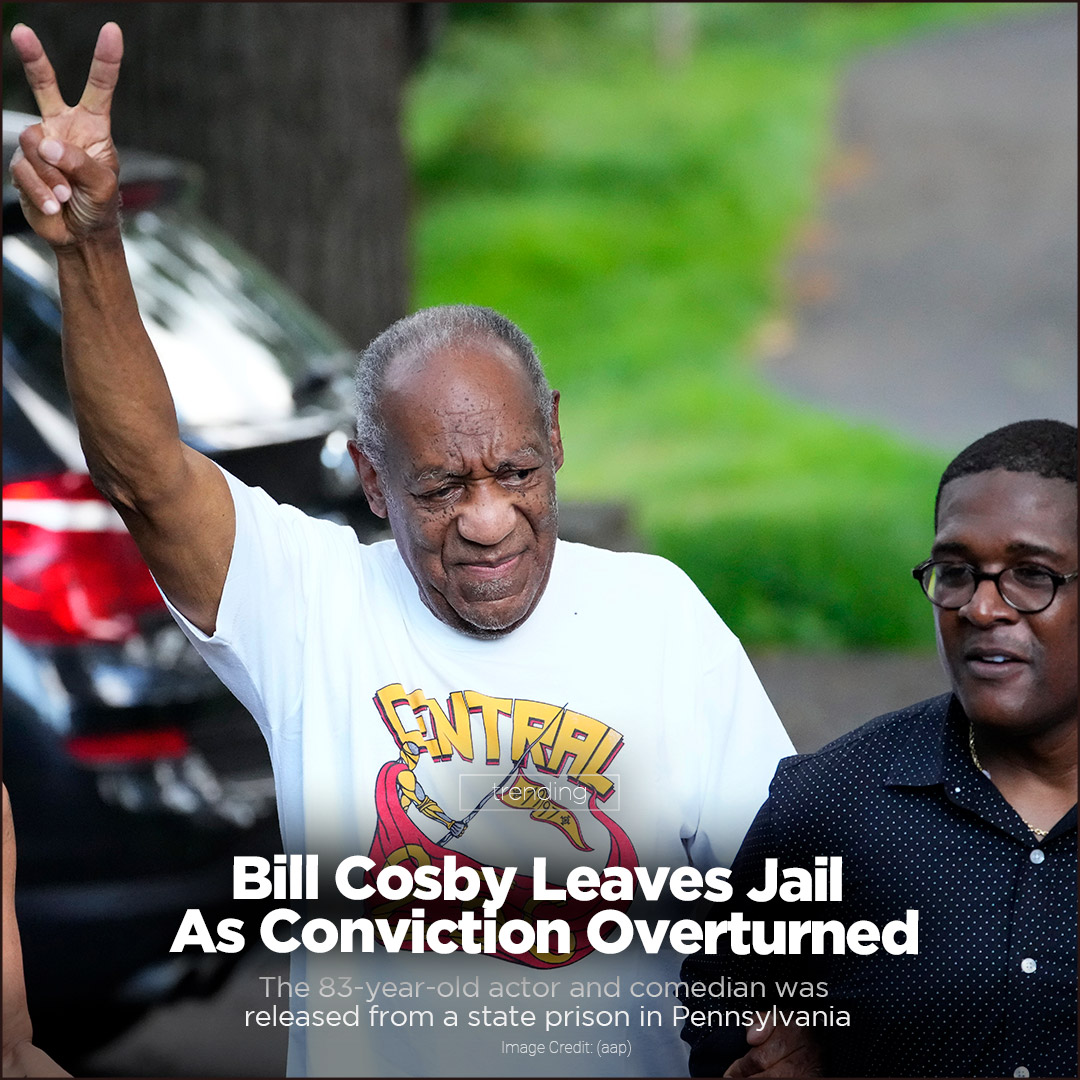Selected
- Details
- Written by Grant Broadcasters
- Category: Selected
- Hits: 272
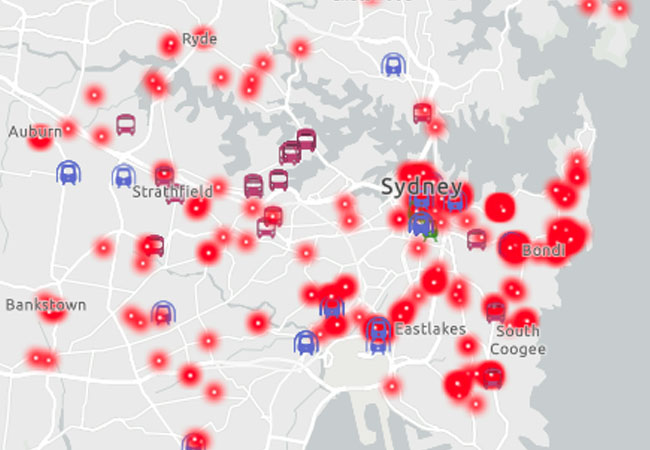
A new app promises to make contact tracing data more accessible to Australians.
The CRISPER app was developed by researchers at the Australian National University and the University of Queensland and launched on Thursday for desktop and smartphones.
Project lead ANU Professor Colleen Lau said the app provides accurate, reliable and "spatially explicit" real-time information on COVID-19.
"It is nice and visual and on a map compared to just getting a list of locations so it is much easier for people," Professor Lau told AAP.
"You can zoom in to where you live or work and see if there are any (exposure site) locations near you."
The researchers currently use publicly available post-code level data to create a national database of cases, deaths, testing, and contact tracing alert locations.
The app was not funded, created or endorsed by any government but it uses data from health departments across Australia on health advice and exposure sites, dates and times.
Professor Lau said the app updates around every hour and was more "user friendly" than trying to keep tabs on the COVID-19 alerts for each suburb, state and territory every day.
CRISPER also provides a national summaries dashboard, an interactive mapping tool for NSW and users can set up automatic alerts for certain locations.
Lau said while the project was designed for the general public, as a former GP she knew how helpful it would be for health professionals.
"GPs are very busy so [with the app] they can see what is happening around their clinic and know if they have a patient coming in with symptoms whether there is an exposure site nearby," Professor Lau said.
ANU epidemiologist Dr Meru Sheel said the app was a "one stop shop" to review exposure sites and it would help epidemiologists understand transmission patterns.
© AAP 2021
Image: CRISPER website
- Details
- Written by Grant Broadcasters
- Category: Selected
- Hits: 264
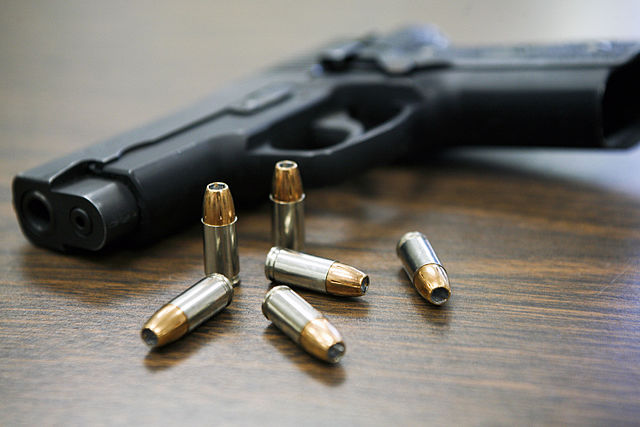
A gun amnesty has come into effect across Australia, allowing anyone with unregistered or unwanted firearms to hand them over to police without being penalised.
The amnesty, announced by the federal government, aims to remove such weapons from the community where they could fall into the hands of criminals.
"Unregistered firearms are a threat to our community," Assistant Minister for Community Safety Jason Wood said on Thursday.
"They are difficult to trace and can fall into the hands of criminals to commit terrible crimes while avoiding police detection."
Anyone holding an unregistered firearm or firearm-related item can from Thursday surrender it to a police station, anonymously and without penalty, for registration, sale or destruction.
Licensed firearms dealers will also be able to accept surrendered firearms in most states and territories.
"If you have an unregistered firearm and you want to keep it, hand it in and see if you can register it," Mr Woods said in a statement.
"If you don't want to keep your firearm, hand it in. Your community will thank you."
But if a person does not surrender an unregistered firearm and is found holding one, they could be prosecuted.
The last national firearms amnesty in 2017 resulted in more than 57,000 weapons being handed in across Australia.
This amnesty will be permanent, the government said.
No compensation for surrendered weapons will be paid.
People surrendering weapons to police or a dealer should call ahead and deliver the items in a bag or other covering, unloaded.
WHAT'S INCLUDED UNDER THE AMNESTY:
* Gel blasters - toy guns that look a lot like real guns that fire gel balls'. Western Australia will ban these from July 3.
* Crossbows - not specifically included but contact your local police to arrange surrender.
* Illegal accessories - silencers, ammunition and other parts are included.
* Faulty firearms and parts - included.
* Licensed firearms - included.
© AAP 2021
Image: St. Louis Circuit Attorney's Office, CC BY-SA 4.0, via Wikimedia Commons
- Details
- Written by Grant Broadcasters
- Category: Selected
- Hits: 274
Bill Cosby has been freed from prison and returned home, less than two hours after Pennsylvania's highest court overturned his sexual assault conviction, saying he never should have faced charges after striking a non-prosecution deal with a previous district attorney more than 15 years ago.
The Pennsylvania Supreme Court issued its 4-3 split decision on Wednesday after Cosby had served more than two years of a three- to 10-year sentence following his 2018 conviction.
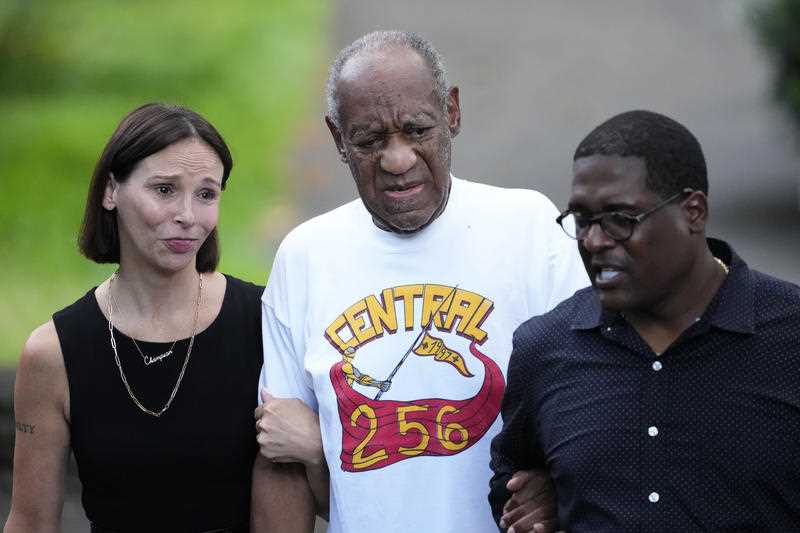
(Credit: AAP)
The 83-year-old actor and comedian was released from a state prison in Pennsylvania just before 2.30pm (4.30am on Thursday AEST), a corrections department spokesperson said.
About an hour later, he arrived at his mansion in Elkins Park, a Philadelphia suburb, before making a brief appearance alongside his lawyers in front of the media.
A frail-looking Cosby smiled and nodded when asked if he was happy to be home, but he did not answer reporters' questions.
"Mr Cosby's conviction being overturned is for the world and all Americans who have been treated unfairly by the judicial system" his spokesperson, Andrew Wyatt, said.
Cosby is best known for his role as the lovable husband and father in the 1980s television comedy series The Cosby Show, earning him the nickname "America's Dad".
But his family-friendly reputation was shattered after dozens of women accused him of sexual assault over a period of decades. His conviction was widely seen as a watershed moment in the #MeToo movement that brought forth an array of allegations against powerful men in Hollywood and beyond.
I have never changed my stance nor my story. I have always maintained my innocence.
— Bill Cosby (@BillCosby) June 30, 2021
Thank you to all my fans, supporters and friends who stood by me through this ordeal. Special thanks to the Pennsylvania Supreme Court for upholding the rule of law. #BillCosby pic.twitter.com/bxELvJWDe5
Cosby was found guilty of drugging and molesting Andrea Constand, an employee at his alma mater Temple University, at his home in 2004. Constand's allegations were the only ones against Cosby that were not too old to allow for criminal charges.
The court's decision expressly barred prosecutors from retrying Cosby.
In a statement, Constand and her lawyers said they were disappointed in the ruling and concerned it could dissuade other victims from seeking justice.
"Once again, we remain grateful to those women who came forward to tell their stories," they said.
Montgomery County District Attorney Kevin Steele, who charged Cosby in 2015, noted that a jury found Cosby guilty and Wednesday's decision was not based on the facts of the case.
Reaction was swift, with many women involved in the #MeToo movement expressing horror at the decision.
"THIS is why women do not come forward," writer E Jean Carroll, who has accused former president Donald Trump of raping her in the 1990s, wrote on Twitter. Trump has denied her claim.
Lisa Bloom, a lawyer who represented some of Cosby's accusers, told CNN she was "absolutely disgusted and shocked".
But Phylicia Rashad, Cosby's co-star on The Cosby Show, celebrated the ruling for correcting "a miscarriage of justice".
The court's majority found a state prosecutor, Bruce Castor, made a deal with Cosby's lawyers in 2005 not to bring criminal charges after concluding he could not win a conviction.
As a result, Cosby was unable to avoid testifying as part of a civil lawsuit that Constand brought against him, since defendants can only refuse to testify when faced with criminal prosecution.
In a deposition, Cosby acknowledged giving women sedatives to facilitate sexual encounters, though he maintained they were consensual. He eventually paid Constand a multimillion-dollar settlement.
His admission, which a judge unsealed in 2015, helped form the basis for criminal charges that year.
The prosecution, the Pennsylvania Supreme Court found, essentially amounted to reneging on Castor's earlier promise not to charge Cosby, violating his due process rights.
Castor made national headlines in February as a member of former President Donald Trump's legal defence team during Trump's impeachment trial in the US Senate.
In an interview, Castor said his deal with Cosby was the only way to ensure he would pay some sort of penalty via a civil lawsuit.
Cosby's first trial ended with a hung jury in 2017. He was found guilty at a second trial after the judge allowed prosecutors to call five prior accusers - four more than in the first trial.
© AP 2021
- Details
- Written by Grant Broadcasters
- Category: Selected
- Hits: 236
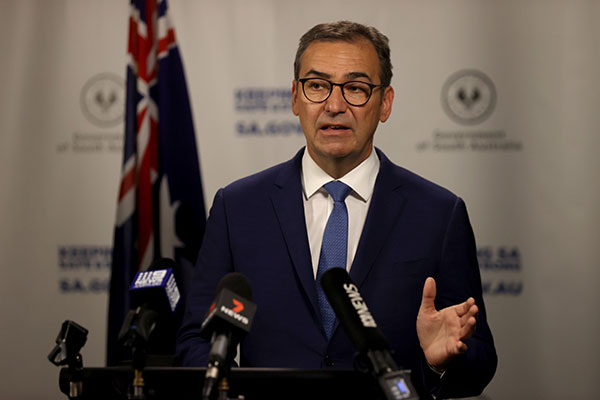
South Australia has reported five local COVID-19 infections, all involving the family of a miner who recently returned from the Northern Territory.
But Premier Steven Marshall says the state will not be going into lockdown.
The new cases involve the miner, his wife and three of their children, all aged under 10.
"While this is a very concerning turn of events, we are very relieved this person and this family have been at home since Saturday," Mr Marshall said.
He said the family had all been transferred to Adelaide's dedicated facility for positive coronavirus cases.
The cases were regarded as "linked transmissions" from the Northern Territory exposure mine site.
The other 28 miners who returned from the same NT mine have also been in isolation since arriving in SA and are being retested.
Chief Public Health Officer Nicola Spurrier said officials had moved to require anyone on the same Alice Springs to Adelaide flight as the infected miner on Friday, to go into isolation.
More than 100 people who were on board VA1742 have already been contacted with a small number still to be notified.
Checking is also underway to identify any possible contacts at Adelaide Airport and at a suburban takeaway food outlet the man visited on his way home.
Both those locations are considered low risk.
Professor Spurrier said while the outbreak was regarded as contained at this stage, more work remained to be done and officials did not want the Delta strain of the virus to become widespread in the community.
"What we're seeing with this Delta variant is there's almost a 100 per cent hit rate for close contacts," she said.
In response to the new cases, SA's transition committee has reduced the number of people allowed at family gatherings to just 10.
While the AFL game between the Adelaide Crows and the Brisbane Lions at Adelaide Oval on Saturday is still expected to go ahead, a decision is yet to be made on whether or how many spectators will be allowed.
Premier Marshall said people were being advised to work from home where possible, and everyone was urged to use QR codes, get vaccinated and observe social distancing.
"We can see the consequences of getting this wrong. We don't want a lockdown in South Australia," the premier said.
Amid reports of panic buying across SA supermarkets, the premier said there was no need for such action.
© AAP 2021
Image: South Australian Premier Steven Marshall (AAP Image/Kelly Barnes)
Page 182 of 191
